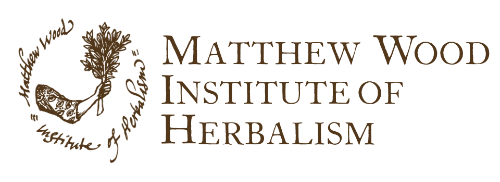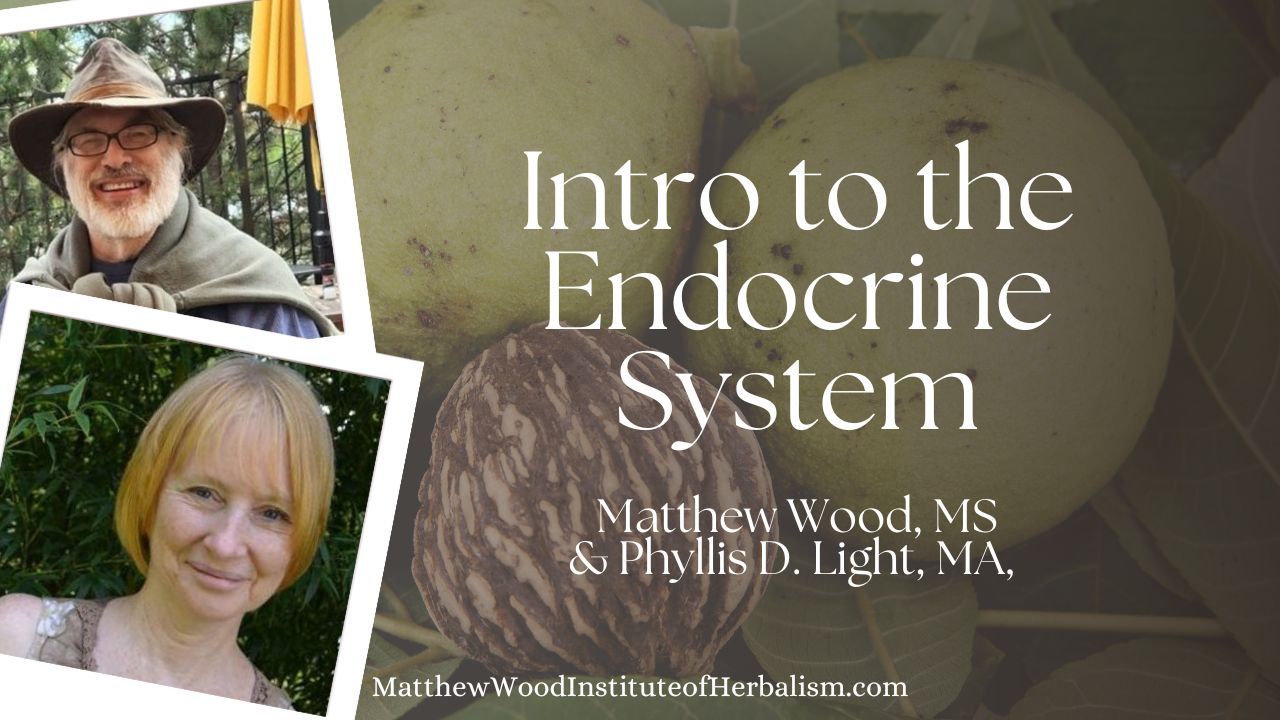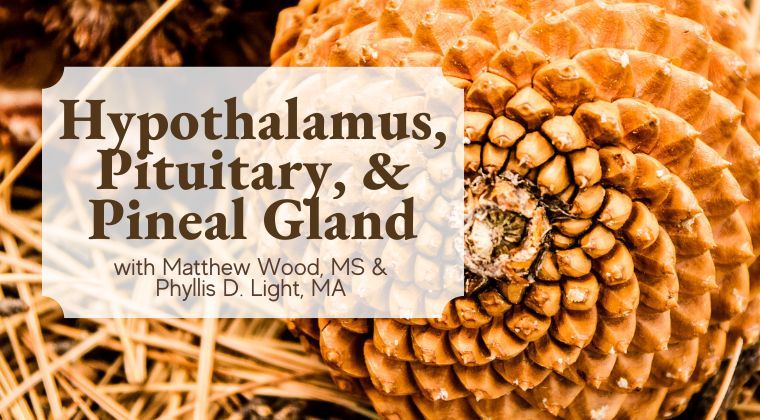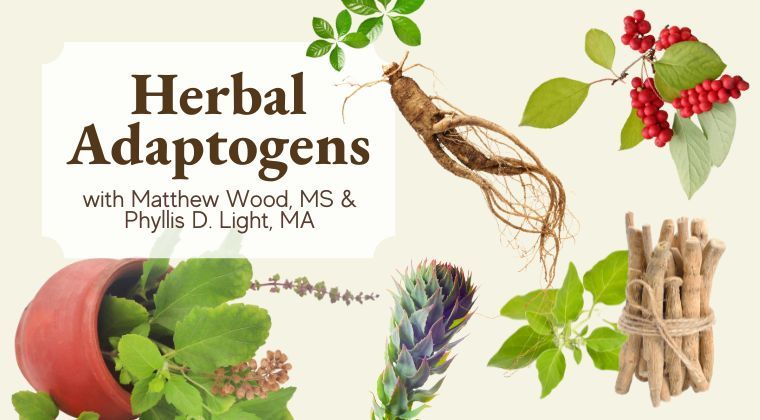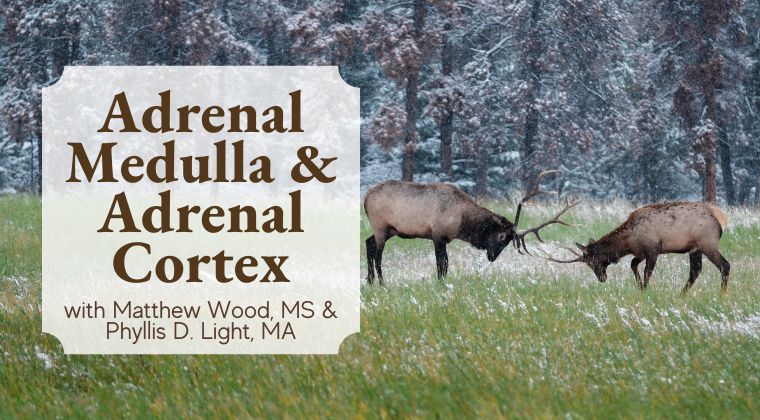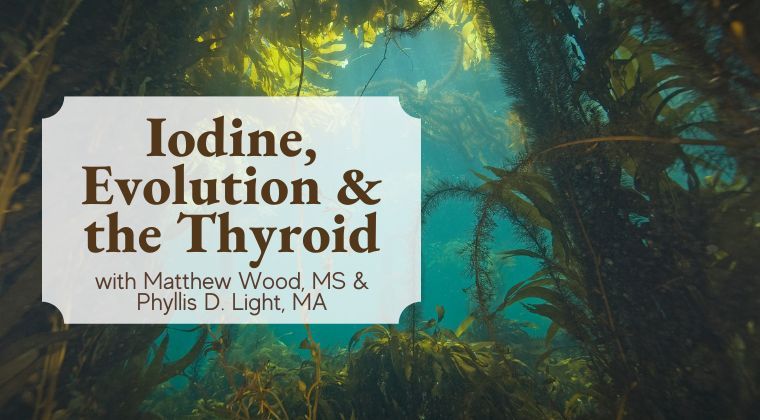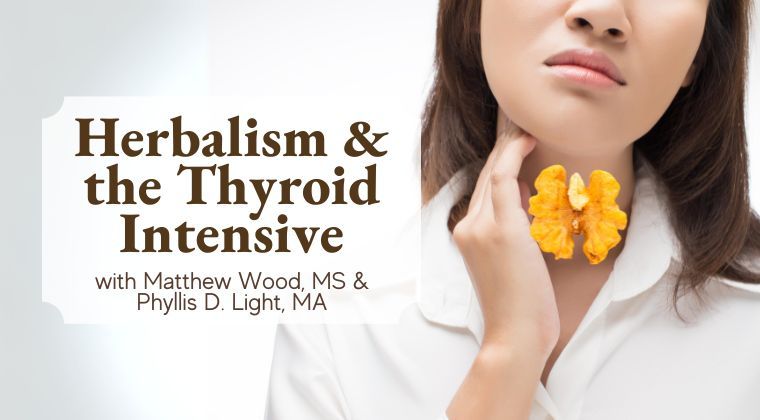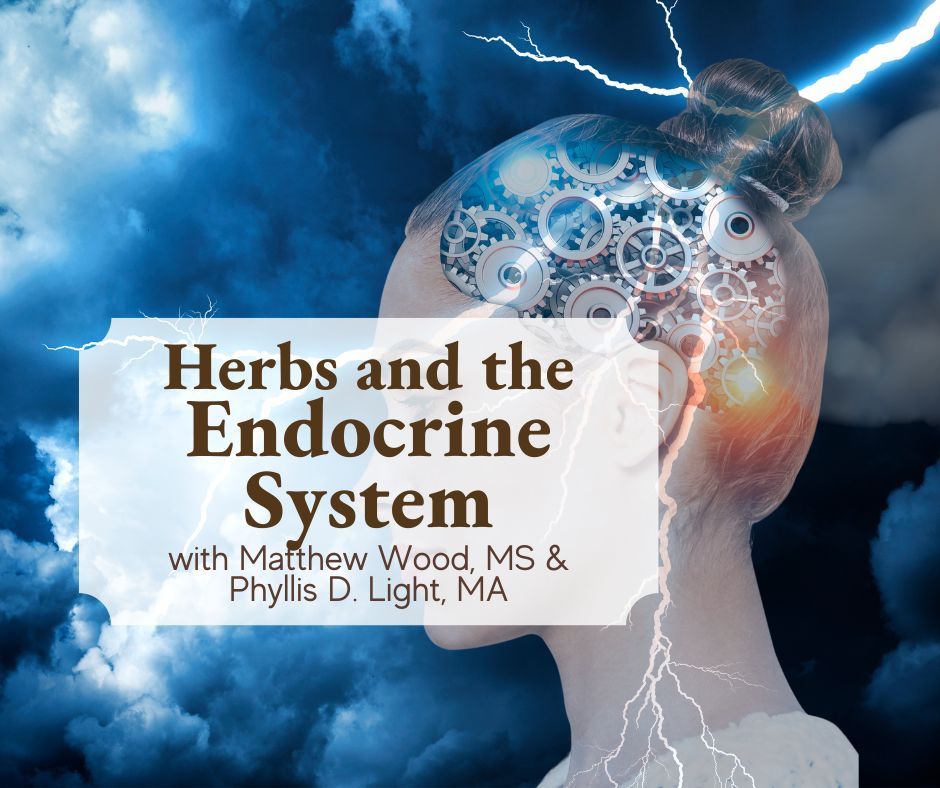
Herbs & the Endocrine System
Empowering - Holistic - Insightful
Master herbal secrets for balancing your body's command center!
This course provides a comprehensive exploration of the endocrine system, focusing on the integral role it plays in the body's overall health and the ways herbal medicine can support its function.
Participants will delve into the functions of key glands, such as the hypothalamus, pituitary, pineal, adrenal medulla, adrenal cortex, and thyroid, gaining insights into their interactions and the hormones they produce.
Throughout the course, you'll learn about the impact of stress on the endocrine system and discover how herbal adaptogens can enhance the body's ability to manage stress by improving communication between the hypothalamus, pituitary, adrenals, and thyroid. The course also covers the historical and contemporary importance of iodine, particularly in thyroid health, and examines various thyroid conditions, their causes, and effective, time-tested herbal remedies.
With a focus on holistic approaches, this course equips participants with the knowledge to support endocrine health using plant-based allies, empowering them to address common endocrine disorders, and promote well-being naturally.
Throughout the course, you'll learn about the impact of stress on the endocrine system and discover how herbal adaptogens can enhance the body's ability to manage stress by improving communication between the hypothalamus, pituitary, adrenals, and thyroid. The course also covers the historical and contemporary importance of iodine, particularly in thyroid health, and examines various thyroid conditions, their causes, and effective, time-tested herbal remedies.
With a focus on holistic approaches, this course equips participants with the knowledge to support endocrine health using plant-based allies, empowering them to address common endocrine disorders, and promote well-being naturally.
Write your awesome label here.
Classes Include
Includes
Support Materials
474 pages of online reading
Video
15 hours of teaching
Certificate
Certificate included
(see more below)
Pay Once = One Year Access
1 year to view and review content, ask questions and discuss
This is for you if you...
Upon completion, you will...
Teachers
Matthew Wood, MS
Matthew Wood has been a practicing herbalist for over forty years. He is an internationally known teacher and author with more than ten books to his credit. Matthew has an MSc in herbal medicine from the Scottish School of Herbal Medicine (accredited, U. of Wales). He lives in the Midwest.
Phyllis D. Light, MA
As a 4th generation herbalist, Phyllis started with lessons from her grandmother who taught from her Creek/Cherokee heritage. Phyllis has studied and worked with herbs, foods, and other healing techniques for 30+ years. She is the author of Southern Folk Medicine and co-author of Traditional Western Herbalism Pulse Evaluation.
Certificate Included
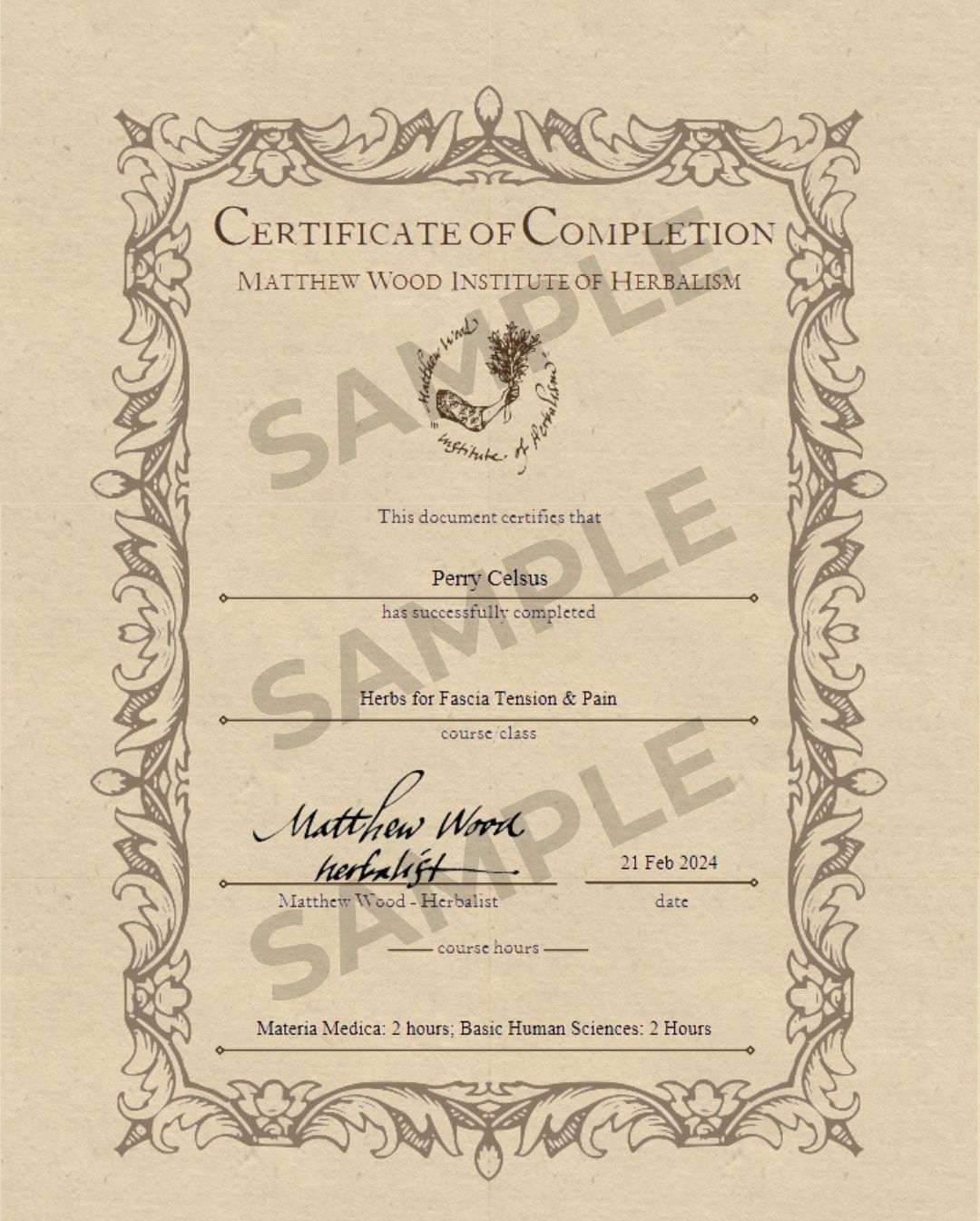
-
How to Get a Certificate
- Complete course materials
- Pass the test with a grade of 70% or better
- Save or print your certificate!
Available with subscription and individual course purchases.
-
Accreditation hours
This course is a total of 28 accredited hours- 7.5 hours Materia Medica
- 15.5 hours Basic Human Sciences
- 1 hour Nutrition and Medical Terminology
- 4 hours Current Evidence Based Botanical
*Please check with your accrediting agency whether they will accept accredited hours or certificates from the Matthew Wood Institute of Herbalism
Write your awesome label here.
Herbs & the Endocrine System
Transform your health with expert insights into the endocrine system.
Looking For A DEEPER JOURNEY INTO HERBALISM?
